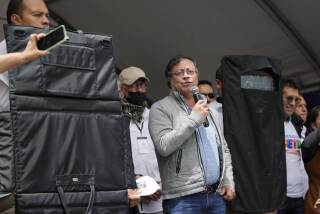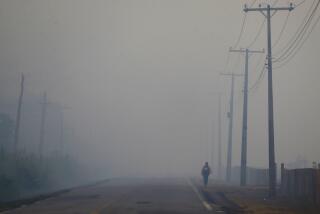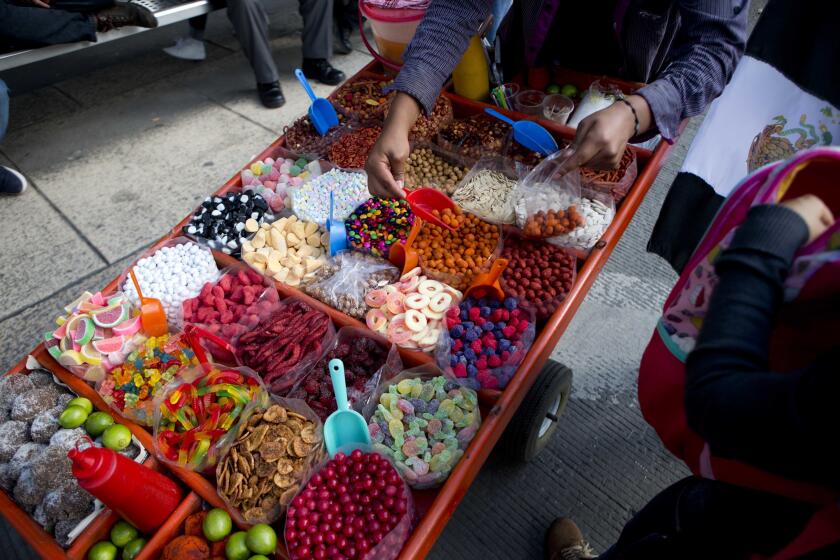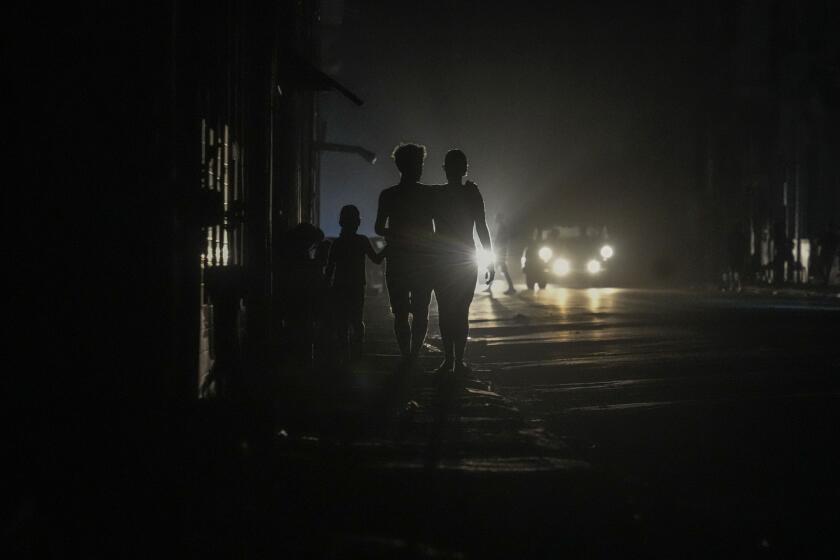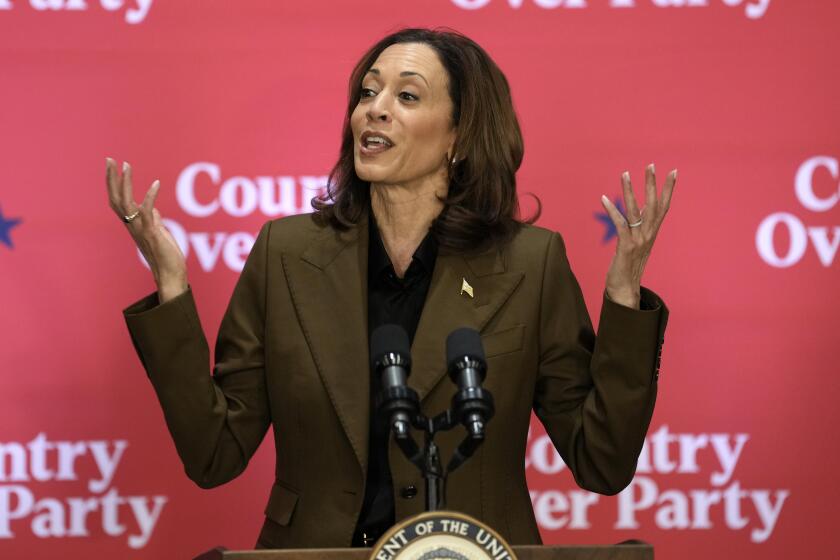In face of protests, Brazil’s Rousseff offers anti-corruption measures
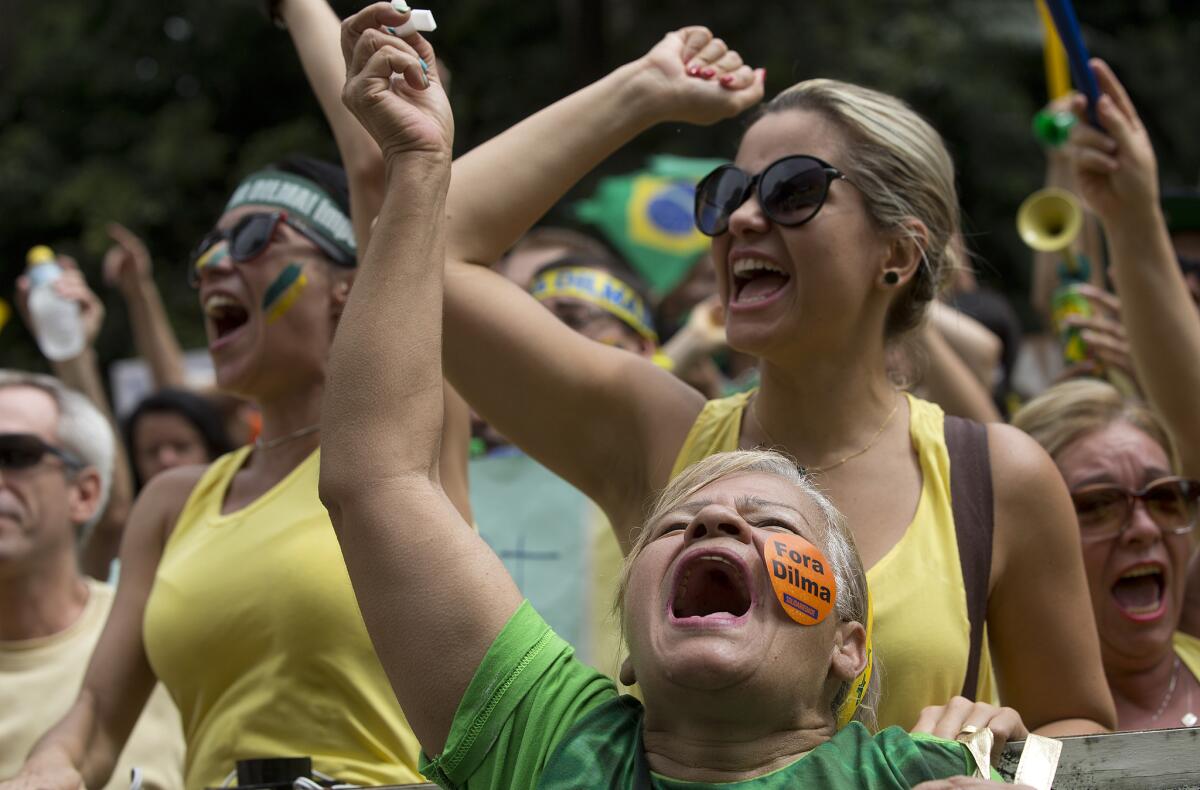
Brazilian President Dilma Rousseff on Wednesday announced a package of anti-corruption measures that she will send to Congress, as she and her party face a backlash over the massive scandal at state-run oil giant Petrobras.
The package includes seven measures, some of which could mean up to 10 years in prison for those involved in corruption and fines of between five and 10 times the amount of money involved in any scheme.
The measures also would subject more members of the executive, legislative and judicial branches of government to the 2010 Ficha Limpa act, which makes anyone ineligible to serve in government for eight years if he or she has been impeached, resigned to avoid impeachment or convicted by a panel of judges.
New rules would also be put in place that would apply to goods acquired by those involved in corruption and then seized by the judicial system.
“We are a government that does not tolerate corruption, and we are committed to and have the obligation to address impunity that fuels corruption,” Rousseff said at a ceremony in Brasília, the capital, to announce the measures. “These measures strengthen the fight against impunity.
“This impunity is perhaps, as I said, the biggest factor that guarantees the reproduction of corruption,” she said.
Hundreds of thousands of Brazilians took to the streets Sunday to protest against Rousseff’s administration, skyrocketing inflation and the $3.8-billion Petrobras scandal.
“This has gone on long enough. We don’t deserve to live like this. Our children don’t deserve to inherit a country like this,” said Cecilia Prado, who brought her 3-year-old daughter, Valentina, to Sunday’s protest in Sao Paulo. “I want my daughter to see that she doesn’t have to stand by and let corrupt officials run her country. You can love your country without supporting its leader.”
Rousseff’s approval ratings in polls have plummeted to 23% in February, down from 42% in December. Even in the northeast, where the president and her Workers’ Party are most popular, Rousseff’s approval rating is at 16%.
The president has denied any involvement in or knowledge of the Petrobras scandal, despite having been chairwoman of the oil giant from 2003 to 2010, when much of the alleged graft took place.
The inquiry on Brazil’s largest corruption scandal has already led to more than 40 indictments on bribery, racketeering and money laundering charges. Those charged include Workers’ Party Treasurer Joao Vaccari, two former Petrobras managers and several executives from some of Brazil’s top engineering firms.
The conglomerates Odebrecht SA and Andrade Gutierrez also are under investigation, but deny any involvement in the scandal. Thirty-four politicians in office, including the speakers of both houses of Congress, also are being investigated on suspicion of taking bribes.
According to prosecutors, construction and engineering firms paid kickbacks to appointed Petrobras executives in exchange for lucrative contracts.
Langlois is a special correspondent.
More to Read
Sign up for Essential California
The most important California stories and recommendations in your inbox every morning.
You may occasionally receive promotional content from the Los Angeles Times.

